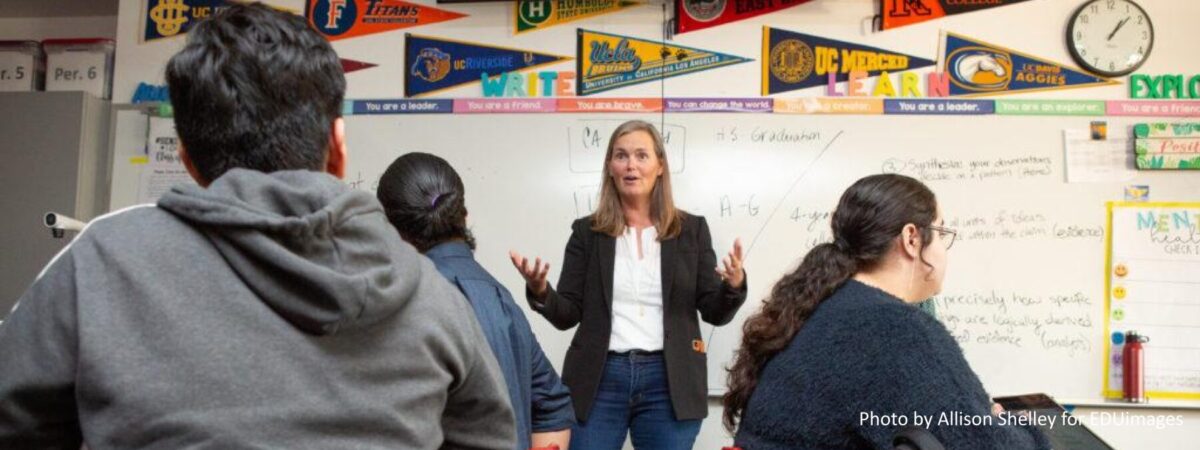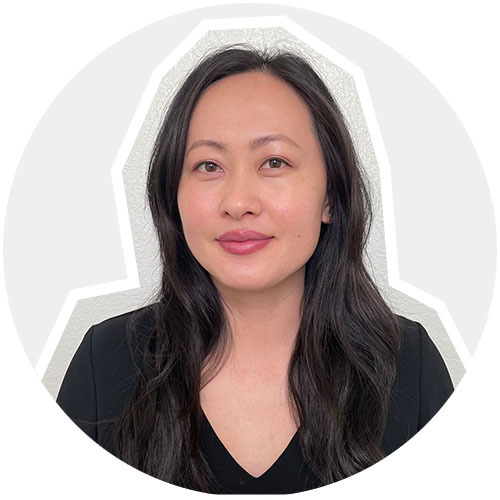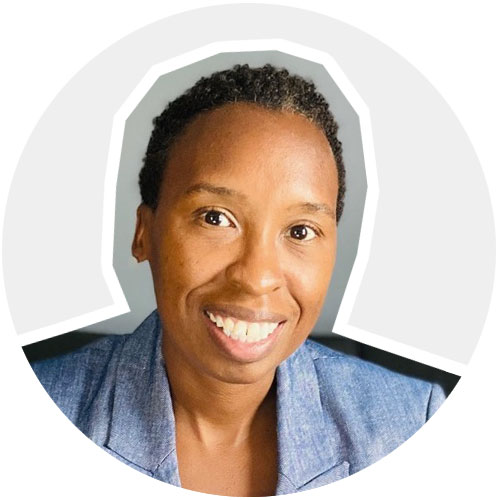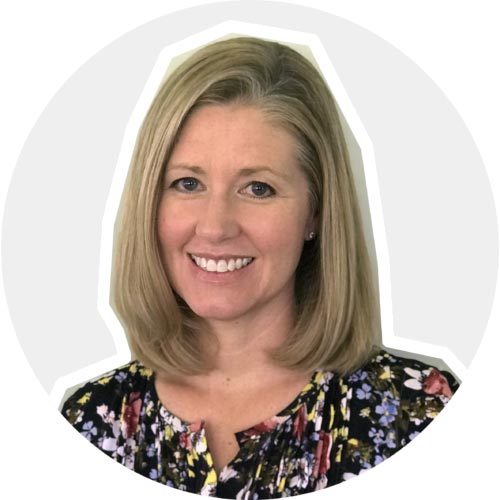
How are researchers at Digital Promise preparing for back to school? We asked researchers on the Learning Sciences Research (LSR) team and the Center for Inclusive Innovation (CII) to share one resource they’re appreciating and what they’re looking forward to in the coming school year.
 Angela Hardy, Education Researcher
Angela Hardy, Education ResearcherRecommended Resource: Empathy Interviews for Developing Inclusive Computing Pathways (protocol)
When we launched our Deeper Discussions in World History project, it was important for us to center teacher context expertise and incorporate student voice from day one. We looked to the work of our colleagues in the Developing Inclusive K-12 Computing Pathways Research Practice Partnership (Computational Thinking Pathways) program as a model, and drew heavily from the structure and directions in the empathy interview protocols they designed as part of that work.
What are you reading this summer?
This summer I’m reading Gholdy Muhammad’s book “Unearthing Joy: A Guide to Culturally and Historically Responsive Teaching and Learning.” Gholdy defines joy as “the practice of loving self and humanity; caring for and helping humanity and earth; recognizing truth, beauty, aesthetics, art, and wonder; and working to solve social problems of the world.” As I read, I’m thinking about places where our team can center joy in the curricular and teaching materials we’re developing to support deeper discussions in history classrooms.
 Judi Fusco, Director of Emerging Technologies and Learning Sciences
Judi Fusco, Director of Emerging Technologies and Learning SciencesRecommended Resource: Project Topeka Resources (webpage)
Since GenerativeAI came on the scene in November 2022, I’ve appreciated the work done on Project Topeka, a program for teaching argumentative writing that brought together cutting edge tools and high quality instructional resources. While the AI tool in Project Topeka wasn’t the same as the GenerativeAI tools, the project provided insights and examples that researchers and educators could use to think through what new AI systems might be able to provide to K-12 education systems.
What elements of your research are you excited for this year?
I am most excited about really digging into CII’s report A New Narrative: How Unlocking the Power of R&D Through Inclusive Innovation Can Transform Education. One project I lead can learn a great deal from the four Practice Tenets of Inclusive Innovation. I am very excited to learn more from and with the Center for Inclusive Innovation!
 Mai Chou Vang, Senior Researcher
Mai Chou Vang, Senior ResearcherRecommended Resource: 3 Ways We’re Engaging Educators in Learning Sciences Research (blog post)
Research can sometimes feel one-sided, where we collect participants’ perspectives and experiences without giving anything or much back. I’m grateful to see how my colleagues in LSR are engaging participants—educators in these examples—in a way that respects and values their insights and expertise.
What are you reading this summer?
This summer I’m reading “Evaluation By Today’s World: Respecting Diversity, Improving Quality, and Promoting Usability” by Veronica G. Thomas and Patricia B. Campbell. I’m continuously exploring ways to integrate culturally responsive practices into our research and evaluation efforts, so I’m eager to delve into the book and learn ways to meaningfully engage educators, students, families, and communities in our work.
 Shelton Daal, Senior Education Research Associate
Shelton Daal, Senior Education Research AssociateRecommended Resource: A New Narrative: How Unlocking the Power of R&D Through Inclusive Innovation Can Transform Education (report)
I have so much appreciation for the Center for Inclusive Innovation’s Core Tenets and how they can ground our work. In particular, their practice tenets of collective ownership, student voice, context expertise, and continuity of equity are elements that I aspire to address in all of my projects.
What elements of your research are you excited for this year?
This summer, the Deeper Discussions in World History team is hosting our final workshop with our teacher cohort and I couldn’t be more excited. I’ve had the privilege of working with them directly for the past year and a half as we’ve co-designed discussion lessons. Seeing them again in person will be such a great opportunity for us to reflect, connect, and ideate as the project enters its pilot stage.
 Latia White, Senior Inclusive Innovation Researcher
Latia White, Senior Inclusive Innovation ResearcherRecommended Resource: Practitioner-Reported Needs for Enacting, Implementing, and Adopting OpenSciEd Curriculum (report)
As I work to support our partner districts in scaling Open Education Resources (OER) created through Inclusive Innovation, this report by the LSR team’s OpenSciEd Research Community has been particularly impactful. This report resonates with our efforts to help teachers engage with OER materials that foster critical social justice conversations in classrooms. Its findings enhance our understanding of the essential support required for teachers and districts to effectively utilize OER materials.
What are you reading this summer?
On my summer reading list is “Switch: How to Change Things When Change Is Hard” by Chip Heath and Dan Heath. What I like about this book is that it breaks down change into practical principles that can be applied to our work within the Center for Inclusive Innovation as we collaborate with districts to solve their equity challenges.
 Danae Kamdar, Early STEM Education Researcher
Danae Kamdar, Early STEM Education ResearcherRecommended Resource: How We’re Building Collective Ownership to Create a Shared Vision for Early STEM Innovations (blog post)
This blog post highlights a partnership between Digital Promise and YMCA of San Diego County Preschool Programs. The team brings together preschool educators, families, and researchers to co-design inclusive STEM resources that center the strengths, assets, and lived experiences of the preschool community. This work is especially impactful as it serves as a model for collective ownership in research and innovation.
What elements of your research are you excited for this year?
I am excited about the work to better understand how technology and media can support preschool multilingual learners. We are focused on identifying the tools, resources, and features that have promise to promote learning in school and home contexts, facilitate communication with families of multilingual learners, and strengthen home-school connections.